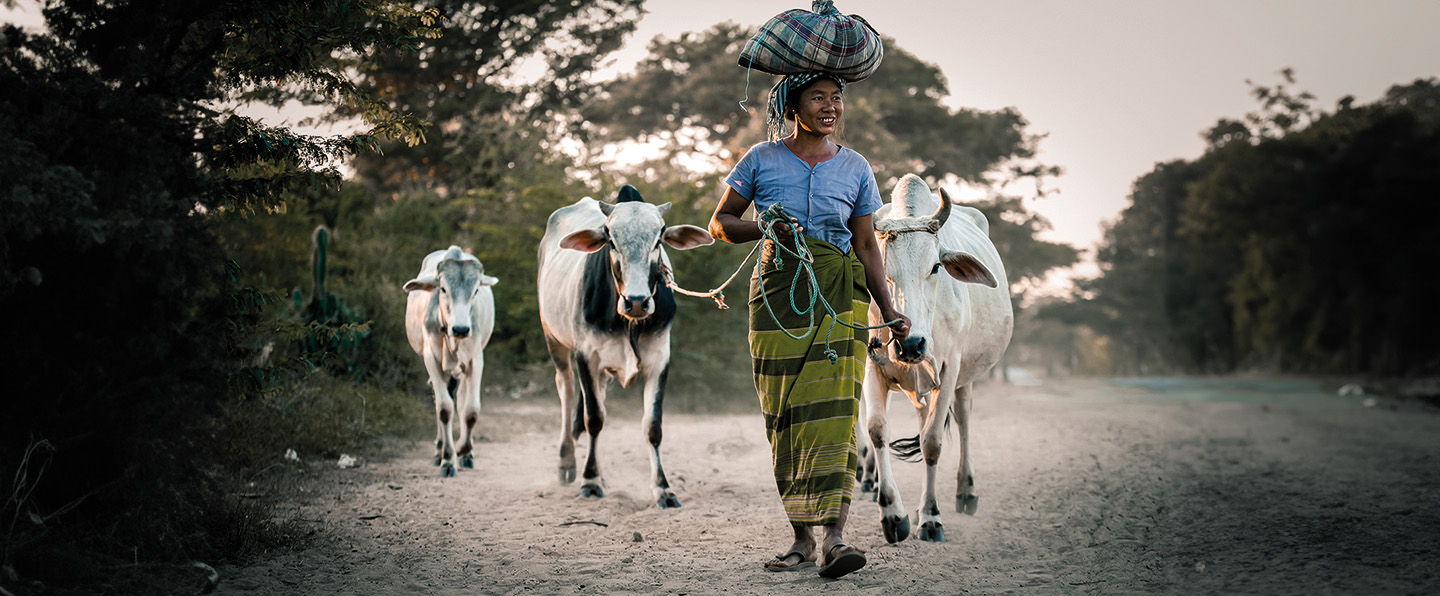
Animal welfare is a complex and multi-faceted subject with scientific, ethical, economic, cultural, social, religious and political dimensions. Perceptions of animal welfare differ from one region to another and between one culture and another, as do in the ways animals contribute to human society.
The World Organisation for Animal Health (WOAH, founded as OIE) has developed and published international standards since 1968. The Terrestrial Animal Health Code (the Terrestrial Code) provides standards for the improvement of animal health, animal welfare and veterinary public health worldwide. WOAH Members and partners use these standards to set up measures for prevention, early detection, reporting and control of pathogenic agents in terrestrial animals, including zoonotic agents. Implementing recommendations in the Terrestrial Code ensures the safety of international trade in animals and animal products, while avoiding unjustified sanitary barriers.
At the regional level, the Regional Animal Welfare Strategy (RAWS) for Asia and the Pacific was established in 2008. RAWS provides guidance and framework for the implementation of WOAH animal welfare standards in the region and improving animal welfare through a range of activities including communication, education, regulation and research and development.
To support and communicate on these activities, we organised a webinar, “Using WOAH Standards to support good animal welfare in Asia and the Pacific”, on 29 September 2023. The objectives for the event are listed below.
Dr Jacqueline Lusat (WOAH), Welcome to the WOAH animal welfare webinar: Using WOAH Standards to support good animal welfare in Asia and the Pacific
Dr Kate Littin (Chair, RAWS), Welcoming remarks and introduction to the Regional Animal Welfare Strategy (RAWS) for Asia and the Pacific)
Dr Teresa Collins, Murdoch University (Australia), Monitoring animal health and welfare of Australian livestock exported by sea
Dr Leopoldo Stuardo Escobar (WOAH), Introduction of WOAH Standards on animal welfare
Dr Anhui Lin, National Parks Board (Singapore), Trap-neuter-release / rehome-manage (TNRM) programme: a human approach to dog population management in Singapore
Dr Xiao Xiao, China Animal Health and Epidemiology Center (China), Practice and challenges of welfare standards for broiler transportation and slaughter
Dr Anna Kabaila, Disease Preparedness and Response team, Department of Agriculture, Fisheries and Forestry (Australia), Culling of animals for disease control purposes
Dr Morgane Salines (WOAH), WOAH Observatory: Thematic study on animal welfare during transport
Webinar: Using WOAH Standards to support animal welfare in the region, 29 Sep 2023 (WOAH)


